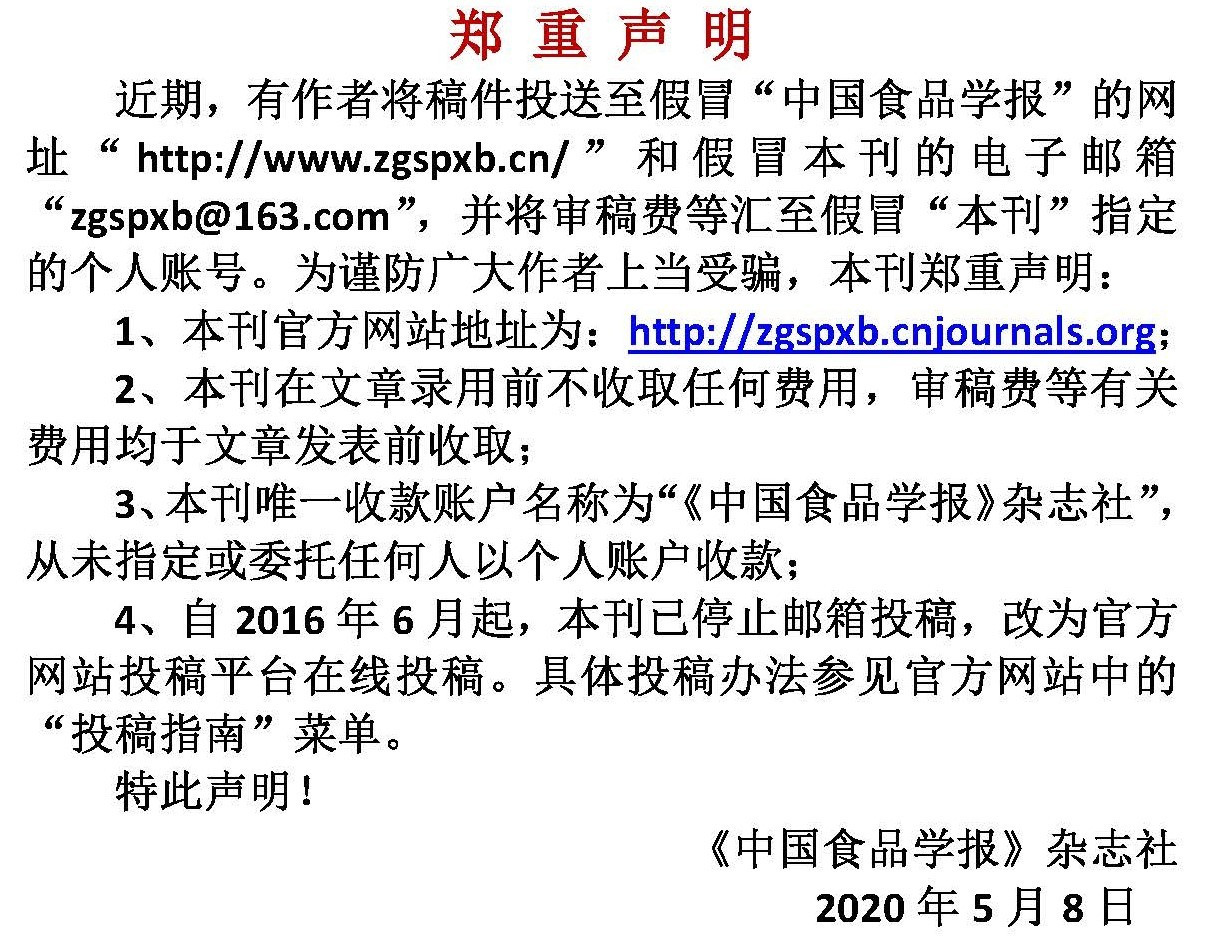Abstract:In recent years, potato starch is concerned by the public as the main ingredient in the production of starchy food. The study was aimed to determine the impacts of the low molecular weight saccharides (sucrose, glucose and fructose) on crystal structure, gelatinization and freeze-thaw stability of potato starch by means of polarizing microscope, rapid viscosity analyzer, differential scanning calorimetry and scanning electron microscope. The results showed that the low molecular weight saccharides increased the gelatinization temperature and enthalpy of potato starch, which were evident by the results that the gelatinization temperature and enthalpy were increased from 62.87 ℃ and 3.06 J/g to 65.35 ℃ and 4.03 J/g with the addition of 12% sucrose, respectively. At the same time, with increasing the concentration of low molecular weight saccharides, the peak viscosity and final viscosity of potato starch increased, whereas the breakdown and setback decreased. For example, the peak viscosity of pure potato starch was 3 936 cp, which was significantly lower than that of potato starch containing 12% sucrose, glucose and fructose were 4 636 cp, 4 311 cp and 4 204 cp, respectively(P<0.05). It suggested that the low molecular weight saccahrides were able to improve the anti-shearing and anti-aging property of potato starch and the application of potato starch in the food industry. Freeze-thaw stability plays an important role in the preservation of starchy food. With the addition of low molecular weight saccharides, the syneresis value of potato starch gel reduced significantly(P<0.05). Especially when the addition amount of the sucrose was 12%, the syneresis value of potato starch gel was 1.80%, which was lower than the pure potato starch gel of 19.37% after 5 freeze-thaw cycles. Moreover, the analysis of microscopic structure of starch gel with saccharides showed that both the cavities formed in the spongy structure were smaller and the gel matrix was thinner than the control after freeze-thaw treatment, which revealed that the ice formation was hindered by the low molecular weight saccharides. The observation of the microscopic structure and the syneresis value of potato starch gel could prove that the low molecular weight saccharides decreased the syneresis value, and improved the freeze-thaw stability. In summary, the low molecular weight saccharides could affect the crystal structure, gelatinization and freeze-thaw stability of potato starch, and the effect of sucrose was the most significant(P<0.05). These properties have an important effect on the quality of starchy food, and the study is a potential application in food industry. Furthermore, the study could provide a scientific basis and technical reference for rational selection of application conditions of potato starch.


